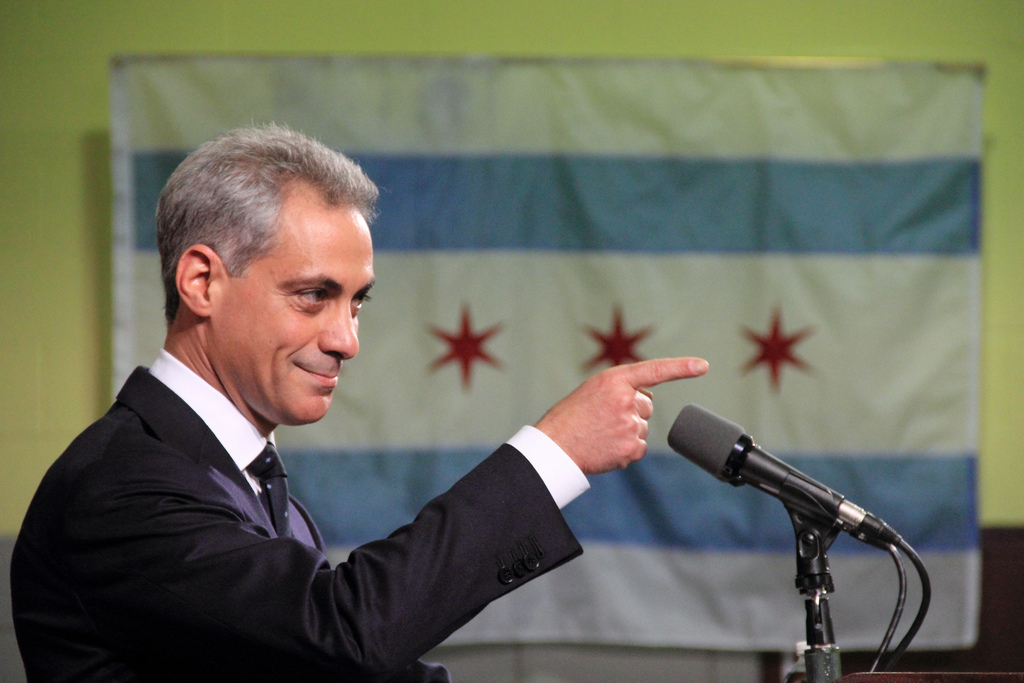Emails unchained

What’s the news?
Mayor Rahm Emanuel’s office is refusing to release email correspondence with the former Chicago Public Schools CEO Barbara Byrd-Bennett, who admitted involvement in a $23 million contracting scandal.
Remind me what the scandal is?
The federal government indicted the former Chicago Public Schools chief, Barbara Byrd-Bennett, on Oct. 8 on charges that she steered bids toward her former company, SUPES Academy, in return for illicit payments. The contract in question was awarded to SUPES for training CPS principals and other officials.
So why is Mayor Emanuel’s office not co-operating with the investigation?
The records being withheld by the mayor’s office are roughly half of the 1,000 emails exchanged between SUPES and the mayor’s office before the contract was awarded to SUPES Academy in June 2013. Emanuel claims his staff asked SUPES Academy “tough questions” to determine whether they should receive the bid.
What’s happening now?
On Oct. 14, Byrd-Bennett pleaded guilty to wire fraud in a Chicago federal court, and tearfully apologized to Chicago children in a televised statement made after her confession.
Why should you care?
Chicago’s Public Schools educate roughly 400,000 of the city’s children, and the quality of their education impacts their welfare and the nation’s future workforce.
Deal or No Deal: Iran Edition
What’s the news?
Iran successfully tested a guided long-range ballistic surface-to-surface missile. This kind of test has not been executed since the U.N. Security Council Resolution 2231 in July. The problem here is, the resolution prohibits Iran from carrying out any actions related to ballistic missiles that could be capable of delivering nuclear weapons.
So they just ignored the resolution?
Well, sometimes they need to test their newest developments. Iran takes pride in its independent military production industry and their technological innovation. Iran's Defense Minister Gen. Hossein Dehghan, said in an interview that the missile, "will obviously boost the strategic deterrence capability of our armed forces." Iran has one of largest missile force in the Middle East, but has been hindered by a lack of accuracy. This target is said to able to be controlled until the moment of impact and to hit targets "with high precision."
Is Iran in trouble?
Sort of. The US has said that this breach of the UN resolution will be discussed in future meetings, as well as the ramifications. There is no official report by the UN of what the consequences might be. One possibility might be imposing more crippling sanctions on Iran. William Reno, Professor at Northwestern in the Political Science Department, states, “This is part of Iran’s strategy. They stage these types of things. For example, there was an incident in September about inspecting nuclear facilities, and they test how other parties are going to interpret the agreement and try to push the edge of it.”
Why should we care?
Many are anxious about what this would mean for the nuclear deal that was just passed by the Iranian parliament on Tuesday by a vote of 161-59. However, the White House press secretary Josh Earnest noted that this test launch would not foil the Iran-US nuclear deal. While Iran time and time again disobeys UN resolutions, it seems the nation has a reliable track record with nuclear deals with individual countries. The test was only meant to alleviate concerns among Iranian radicals who were nervous about the Iran-US deal.
Finding a Reason for Rezaian’s Imprisonment
What’s the news?
Jason Rezaian, Washington Post correspondent who has been imprisoned in Iran for over 14 months, has been convicted with espionage and three other charges after undergoing a trial which ended in August. The details, however, are not fully known as the information regarding the trial was hardly disclosed to the public. Rezaian still denies any wrongdoing.
Why was he imprisoned in the first place?
The details of the verdict also remain unknown, but Rezaian was imprisoned after being suspected of espionage and propaganda against the establishment. He had been held for vaguely defined crimes which led to tense relations between Iran and the US. He still denies any wrongdoing
What happens next?
Rezaian faces sentences potentially up to 20 years. His case has exacerbated some tensions between Iran and the US. Whatever the reasoning of Iranian officials is, the ordeal is far from over.
So what does this have to do with NU?
NU being a journalism powerhouse extends the implications of Rezaian’s imprisonment to the university. Ellen Shearer, Professor at Medill, right before teaching at a hostile environment training session, explained her thoughts on the situation. “I’m appalled but maybe not completely surprised; certainly the Iranian officials have been giving every indication that they were taking a very hard line stance on Jason,” she said. She also described the progression of events as “yet another cautionary tale.”
“Journalists have got to learn as much as they can, but it really gives cause when [Rezaian] was not doing anything wrong or illegal,” Shearer said.